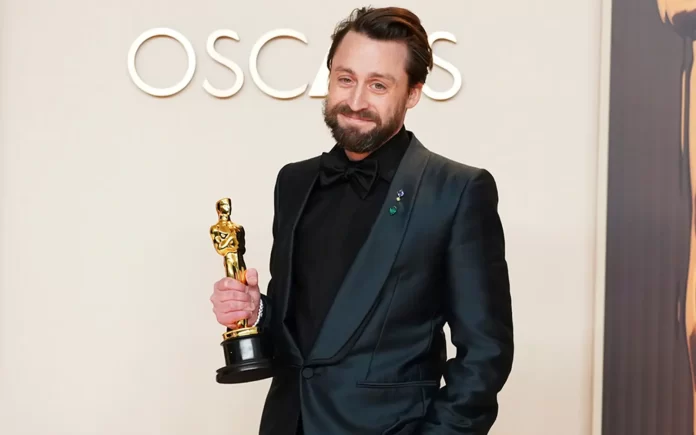
Every year, the annual film awards season lasts from January to March. This timeframe is filled with numerous award shows and ceremonies recognizing the previous year in film. The two-month-long period is concluded by the Academy Awards (The Oscars), the most reputable of the film awards. But some other major film awards precede it. The Screen Actors Guild Awards (SAG Awards), The Critics Choice Awards and The British Academy of Film and Television Arts (BAFTA Awards) have similar categories, nominees and some crossovers in voting members. This leads to many of the results in these film awards being used to predict the winners in the six major awards at the Oscars: Best Picture, Best Director, Best Actor and Actress and Best Supporting Actor and Actress.
The difference between each of the award shows is who decides who wins. Each show has a group of members of their respective organizations. For the Critics Choice Awards, it’s film critics. The BAFTAs are voted on by a combination of actors, directors, producers and a few others. For the SAG Awards, they are voted on by members of the Screen Actors Guild, and members of the Academy of Motion Picture Arts and Sciences vote on the Oscars. While winners have similarities, the differences are explained by the opinion of that body of voters.
Starting back in February, the Critics Choice Awards had four out of the six major awards that were the same as the Oscars. Anora took home the award for Best Picture, Adrien Brody won the award for Best Actor, Kiernan Culkin claimed Best Supporting Actor and Zoe Saldana won for Best Supporting Actress. So overall, the differences from the Oscars were in Best Actress (Demi Moore for “The Substance”) and Director (Jon M. Chu for “Wicked”).
On Feb. 16, the BAFTAs had a similar pattern to the Critics Choice Awards with the winners in Best Actor, Best Actress, Best Supporting Actor and Best Supporting Actress all the same as the Oscar winners. Yet, the winners of Best Picture and Best Director went to different films (“Conclave” and “The Brutalist” respectively).
The next awards show to preface the Oscars is the SAG Awards on Feb. 23, which had the most differences from the eventual Academy Award winners. Demi Moore won best actress, Timothy Chalemet won best actor and “Conclave” won best picture. The supporting actor and actress awards were the same as the future academy award winners. The SAG awards do not have a category for Best Director, but whoever wins that award is usually the same as Best Picture, so “Conclave” would be favored based on said results.
Each of these awards shows having different groups of people voting is the main reason for differences in the winners, but there are also a lot of similarities.
A lot of the decisions vary due to the quality of the film and the industry’s preferences in films. However, there is no doubt that predicting the outcome of the Oscars is more complicated than just following the award shows.
If you were just looking at these results, “Conclave” looked like the clear favorite to win best picture and director as the bulk of the industry was giving it that recognition, but Anora won in the end. Even then, there are also major awards that never change throughout the season, such as the awards for Best Supporting Actor and Actress.
This pattern isn’t new. All the records of awards from the past ten years are available to search on each association’s website. Looking back at previous years, it’s obvious to see a strong line of correlation between the shows.
In 2020, of the main six awards, the only difference was in best picture. Each award show gave the same awards to Brad Pitt for supporting actor, Laura Dern for supporting actress, Renee Zellweger for best actress and Joaquin Phoenix for best actor. The best picture was split fifty-fifty between “1917” and “Parasite.” Or in 2022, when the SAG awards mirrored the Oscars completely in the six major awards and the Critics Choice Awards had five out of the six be the same, but the BAFTAs had one out of the six. It’s not a perfect correlation, but in most years, there is a strong pattern to follow.
Going into the Oscars, there’s a lot of speculation on who will win what award, and looking back at these award shows can prove both informative and deceiving. The differences in opinion among film critics, writers, directors and actors lead to a mixture of predictability and surprise. That is what makes them so entertaining. If you want the best chance at predicting the Oscars, look back at who won the other major film awards.
